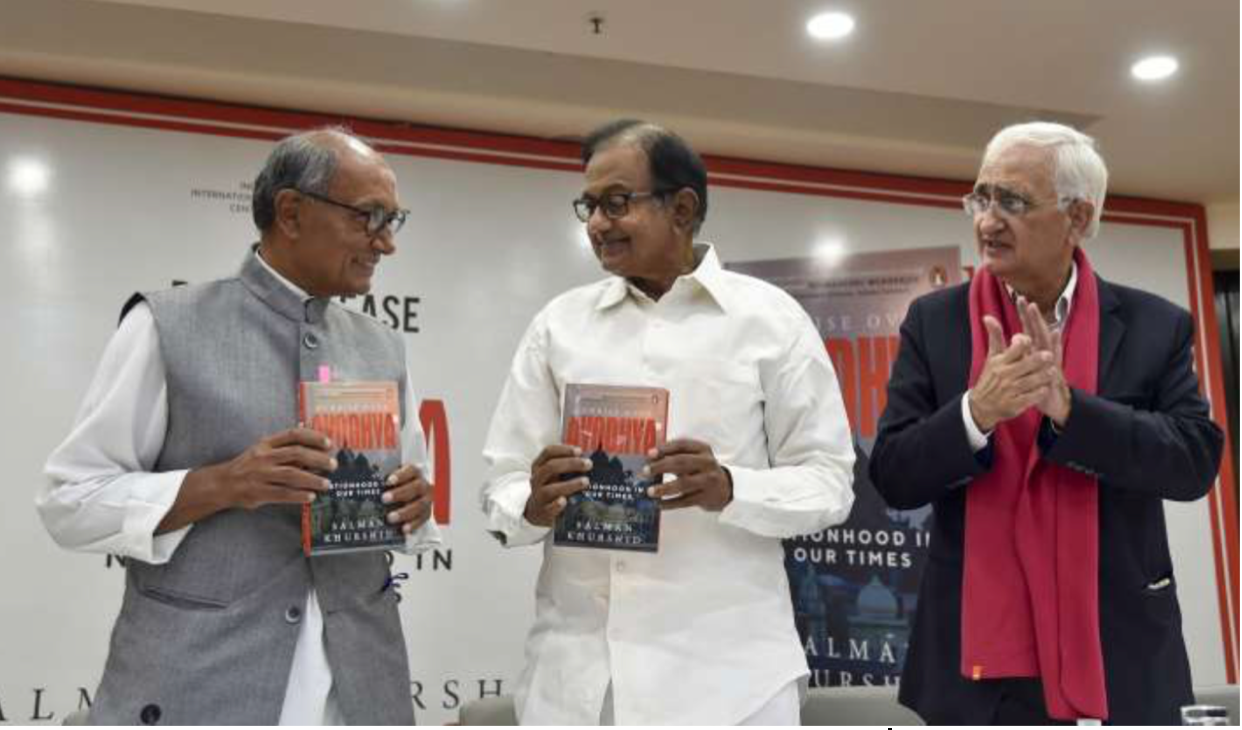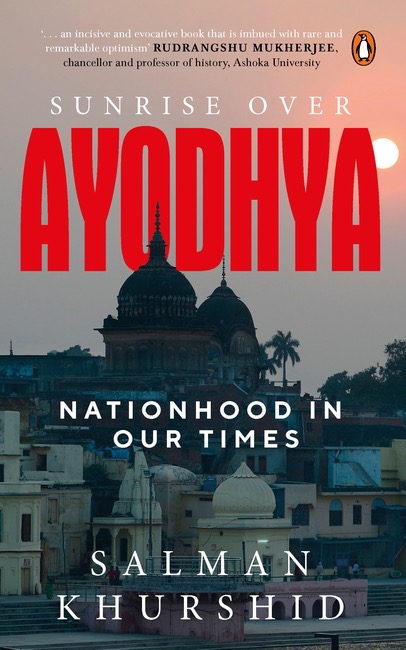Who is Salman Khurshid and why are millions of Indians angry with him? This appears to be a question that is haunting most who have not been following social media regularly. After all, he’s only written a book!
But for those who have read his new book, Sunrise over Ayodhya: Nationhood in Our Times, or have been following up on his views on Hindutva, comparing it to radical Islam, the veteran Congress has stirred hornet’s nest.
In this book, which is about the decline of secularism in India over the construction of the Ram Mandir in Ayodhya, Khurshid writes: “Whatever rationalization might have been offered, the Ayodhya saga was throughout about one faith trumping the methods of another. But the former faith itself was experiencing a contest of interpretation. Sanatan dharma and classical Hinduism known to sages and saints was being pushed aside by a robust version of Hindutva, by all standards a political version similar to the jihadist Islam of groups like ISIS and Boko Haram.”
Cases have been filed in courts at Delhi, Jaipur, and several other places, against the sale of the book. Salman’s house in Nainital was allegedly vandalised. Also Read: The Court Intervention In The Char Dham Project Compromises On India’s National Security
To be honest, the parallels that Khurshid has drawn are not only harsh but a far cry from reality. For, where is the comparison?
ISIS (aka ISIL or Daesh) is a militant Sunni Islamist group designated as a terrorist organisation by the UN and at least 58 countries including 17 Islamic countries. It is responsible for killing over 30,000 people in at least 21 countries from 2013 to 2020. ISIS uses women and girls as sex slaves and gifts them to foreign fighters who join them. The group is infamous for its videos of beheadings and other types of executions of soldiers and civilians, including journalists and aid workers, destruction of cultural heritage sites, human rights abuses, genocide, war crimes, and crimes against humanity.
ISIS aims to return to the early days of Islam, rejecting all innovations in the religion. It condemns later caliphates and the Ottoman Empire for deviating from what it calls pure Islam and seeks to revive the original Qutbist project of the restoration of a global caliphate that is governed by a strict Salafi-Jihadi doctrine. It condemns the followers of secular law as disbelievers, putting the Saudi Arabian government in that category.
Boko Haram (Jamā’at Ahl as-Sunnah lid-Da’wah wa’l-Jihād), too, is a terrorist organisation based in North-eastern Nigeria. In 2016, the group split, resulting in the emergence of a hostile faction known as ISIS’s West Africa Province. As per the UNDP, Boko Haram and its offshoots have been responsible for the deaths of nearly 3,50,000 people in Nigeria since 2011. Almost 2.5 million people have been displaced from their homes. Thousands more have died and lakhs have been displaced in Chad, Niger, and Northern Cameroon.
To understand why Khurshid thinks the way he does, one must know where he comes from. This 69-year-old Congress politician’s ancestry can be traced to the Afridi Pashtun tribe found in Pakistan and Afghanistan, which perhaps explains his beliefs and leanings.
Khurshid won the Farrukhabad (UP) Lok Sabha seat in 1991, and was MOS External Affairs for 3½ years. He lost in 1996, 1998, 1999, and 2004. He then won in 2009, getting just 27.7% votes. In UPA-2, he was an MOS for 15 months. He was made Cabinet Minister in 2011 and held the portfolios of Law and Justice for 15 months, Minority Affairs for 21 months and External Affairs for 19 months.
In April 2013, when China occupied 750 sq km of Indian territory in Eastern Ladakh, Dr Brahma Chellaney had written in The Japan Times: “To add to India’s woes, Salman Khurshid, the country’s bungling foreign minister … called the intrusion just ‘one little spot’ of acne on the otherwise ‘beautiful face’ of the bilateral relationship — a mere blemish that could be treated with ‘an ointment’.” Khurshid said in his May 2013 China visit that he would “love to live in Beijing.” The Times of India wrote: “Khurshid’s visit took on such a rosy hue, that it’s difficult to believe India and China were on the verge of a border conflict just a week ago”!
In September 2008, the Delhi Police killed two Indian Mujahideen terrorists and arrested two in the infamous ‘Batla House Encounter’. This was a week after over 30 people were killed and more than 100 were injured in five serial blasts in Delhi. In a 2012 UP election rally, Khurshid claimed that Sonia Gandhi had “cried bitterly” upon seeing the images of the slain terrorists. Clearly, lawyer Khurshid forgot that the Police was acting against terrorists accused of killing dozens including a Police Inspector!
As a Lawyer, Khurshid has defended SIMI, an organisation banned by the Vajpayee, UPA, and Modi governments, and frequently charged with terrorism.
In 1995, a 3-judge bench of the Supreme Court said: “Hindutva is not a religion, but a way of life and a state of mind.” The ruling quoted two minority judges of the 5-judge bench in the 1994 Ayodhya case, Justices AM Ahmadi and SP Bharucha, “Hinduism is a tolerant faith. It is this that has allowed Islam, Christianity, Zoroastrianism, Judaism, Buddhism, Jainism and Sikhism to find shelter and support [in India].” In 2016, a 7-judge bench of the SC refused to reconsider its 21-year-old judgment. Despite this, in 2019, Khurshid moved the court to refer the Hindutva ruling to a 5-judge bench.
As an author, too, he has forever been controversial. Khurshid has penned nine books (including one in Hindi) since 1987. Five have been on Muslims, and two on related subjects. In his first book, At Home in India: A Restatement of Indian Muslims, while commenting on the 1984 Sikh genocide led by Congress leaders, Khurshid wrote, “… there was also a terrible satisfaction amongst Muslims, who had not completely forgotten the Partition’s unpleasant aftermath. Hindus and Sikhs were alike paying for their ‘sins’. They were paying for the blood they had drawn in 1947.” So much for radical ideology!
By comparing Hindutva, which is tolerant towards all other religions and which follows the philosophy of Vasudhaiva Kutumbakam (the world is one family), Khurshid is now a certified elite member of the triumvirate of Congressmen — the others being P. Chidambaram and Digvijay Singh — who have falsely propagated the narrative of ‘Hindu Terror’ or ‘Saffron Terror’ since 2006. Any surprise then, that the other two launched Khurshid’s book?
(Amit Bagaria is an author, columnist and investor, Strategy Consultant)
[Disclaimer: The opinions, beliefs, and views expressed by various authors and forum participants on this website are personal.]










